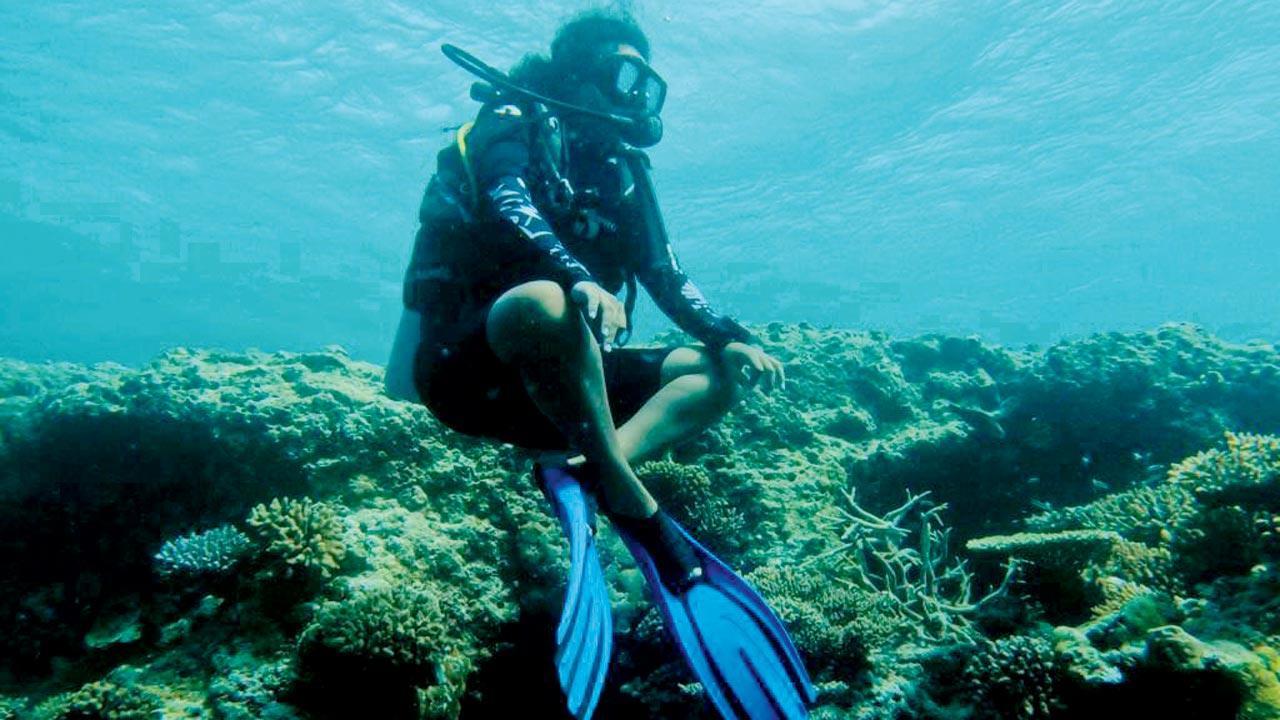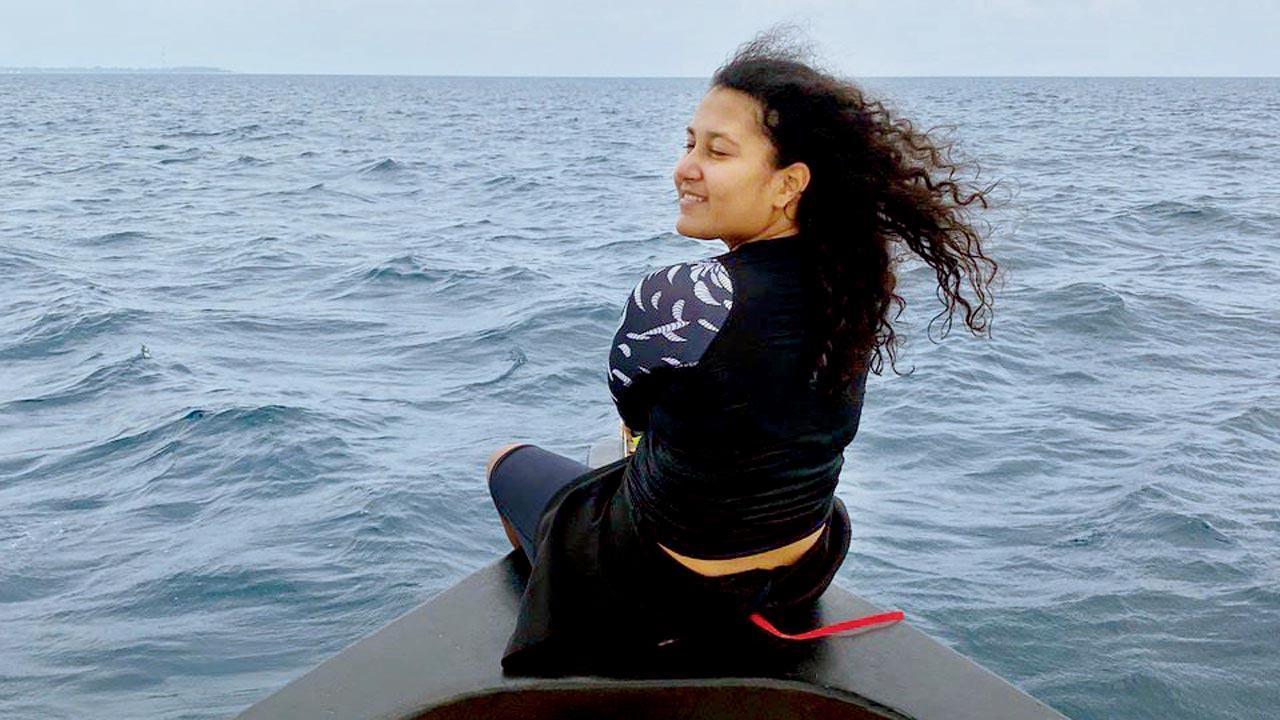India’s first-ever grant for scuba diving, says its founder, is focused more on preserving marine environment and tackling climate change than on the thrills

Twenty three-year-old Vidhi Bubna started the grant to sponsor and support nature enthusiasts, who want to create a positive impact on the marine environment
Ditching her dreams of trekking in the Himalayas, 23-year-old Vidhi Bubna opted for “something safer” with deep-sea diving. She says it’s an adventure activity that her protective parents had no preconceived notions about. “Little did they know that I went diving with rare sharks, stingrays, manta rays, moray eels, whale sharks and numerous other marine life species. I got into diving initially, just to try it out, but I felt at home in the ocean. Amidst that silence, I started finding friends in the sharks and rays. I was willing to give so much to protect them all,” says Mumbai-based Bubna, who is a freelance writer and the author of A Woke Guide To Life.
ADVERTISEMENT
After her first diving experience in the Andamans, she realised that she had experienced a world that most people hadn’t accessed because of lack of funding. Besides, much to her dismay, she learnt that corals were getting bleached. It was the impetus she needed to launch Coral Warriors. Since early 2021, the team has been hosting online workshops to spread awareness about the oceanic environment, specifically corals. They have also been raising funds to sponsor Indian citizens, passionate about climate change, to learn Level 1 - Open Water diving. The special grant of R70,000 is India’s first-ever grant for scuba diving.

Selected candidates can go diving anywhere in the world and complete the first level of diving certification called Open Water Dive. The remuneration, ideally covers course cost, stay, food and travel for most locations around India. The cost would be higher for destinations outside the country.
A certified coral conservationist and rescue diver, Bubna thinks many Indian parents do not support children to learn adventure activities and some even dissuade them. “We have learned to look at trekking and diving as dangerous, with parents thinking that these are the passion of foreigners who grew up in the middle of nature; it’s a very false notion.”
Bubna says that she started the grant to sponsor and support nature enthusiasts, who also want to create a positive impact on the marine environment. A selection committee carefully chooses people who are willing to do something passionately for the environment following the diving course. The idea is to create a domino effect of positive environment projects to combat climate change, particularly for oceans. “We aim to send as many Indians to dive as possible. We have also launched a movement called Brazilian Guitarfish Movement, operating via WhatsApp groups, aimed to promote discussions to save the critically endangered species,” she adds.
Most applicants thus far have been college students. “We want more youth to get involved in projects related to climate change; hopefully some high school students will apply for the grant too. With projects like this, it won’t be long before India gets her own Greta Thunberg.”
Bubna also hopes to launch the grant in Brazil to help sponsor one citizen there to learn diving. Much like India, students of Brazil too lack opportunities in adventure sports, she says. “Brazil is also home to several coral reefs and endangered species. It is necessary to prioritise climate change activism there,” she adds.
To apply for the grant https://www.coralwarriors.org
 Subscribe today by clicking the link and stay updated with the latest news!" Click here!
Subscribe today by clicking the link and stay updated with the latest news!" Click here!







